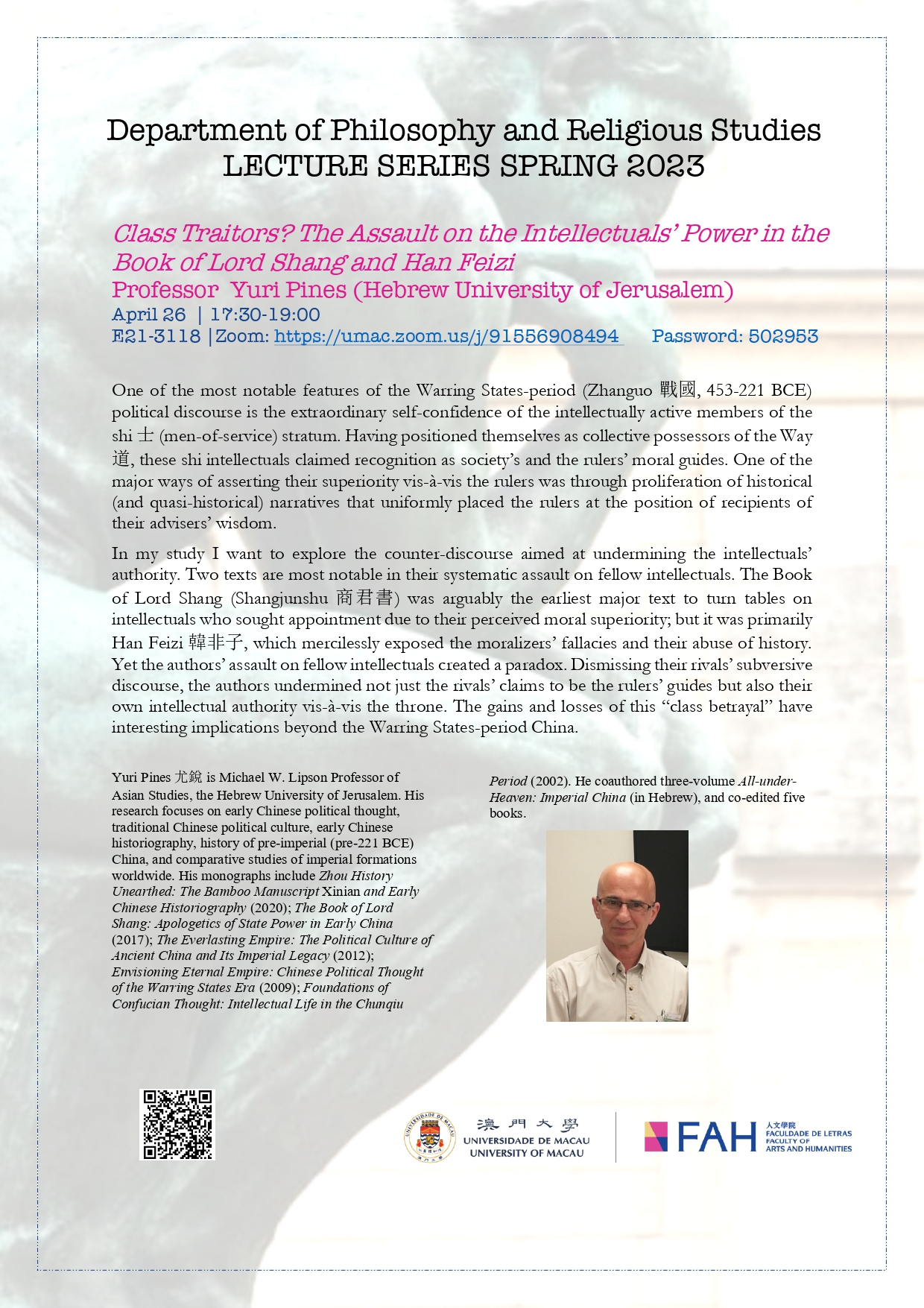

FAH/DPHIL Lecture Series – “Class Traitors? The Assault on the Intellectuals’ Power in the Book of Lord Shang and Han Feizi” by Prof. Yuri Pines, Hebrew University of Jerusalem, Israel
2023-04-26 @ 5:30 pm ~ 7:00 pm
Zoom: https://umac.zoom.us/j/91556908494
Password: 502953
Abstract
One of the most notable features of the Warring States-period (Zhanguo 戰國, 453-221 BCE) political discourse is the extraordinary self-confidence of the intellectually active members of the shi 士 (men-of-service) stratum. Having positioned themselves as collective possessors of the Way 道, these shi intellectuals claimed recognition as society’s and the rulers’ moral guides. One of the major ways of asserting their superiority vis-à-vis the rulers was through proliferation of historical (and quasi-historical) narratives that uniformly placed the rulers at the position of recipients of their advisers’ wisdom.
In my study I want to explore the counter-discourse aimed at undermining the intellectuals’ authority. Two texts are most notable in their systematic assault on fellow intellectuals. The Book of Lord Shang (Shangjunshu 商君書) was arguably the earliest major text to turn tables on intellectuals who sought appointment due to their perceived moral superiority; but it was primarily Han Feizi 韓非子, which mercilessly exposed the moralizers’ fallacies and their abuse of history. Yet the authors’ assault on fellow intellectuals created a paradox. Dismissing their rivals’ subversive discourse, the authors undermined not just the rivals’ claims to be the rulers’ guides but also their own intellectual authority vis-à-vis the throne. The gains and losses of this “class betrayal” have interesting implications beyond the Warring States-period China.
Bio
Yuri Pines 尤銳 is Michael W. Lipson Professor of Asian Studies, the Hebrew University of Jerusalem. His research focuses on early Chinese political thought, traditional Chinese political culture, early Chinese historiography, history of pre-imperial (pre-221 BCE) China, and comparative studies of imperial formations worldwide. His monographs include Zhou History Unearthed: The Bamboo Manuscript Xinian and Early Chinese Historiography (2020); The Book of Lord Shang: Apologetics of State Power in Early China (2017); The Everlasting Empire: The Political Culture of Ancient China and Its Imperial Legacy (2012); Envisioning Eternal Empire: Chinese Political Thought of the Warring States Era (2009); Foundations of Confucian Thought: Intellectual Life in the Chunqiu Period (2002). He coauthored three-volume All-under-Heaven: Imperial China (in Hebrew), and co-edited five books.

